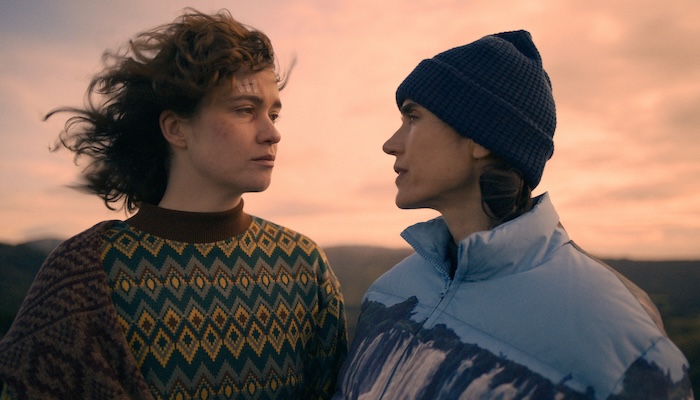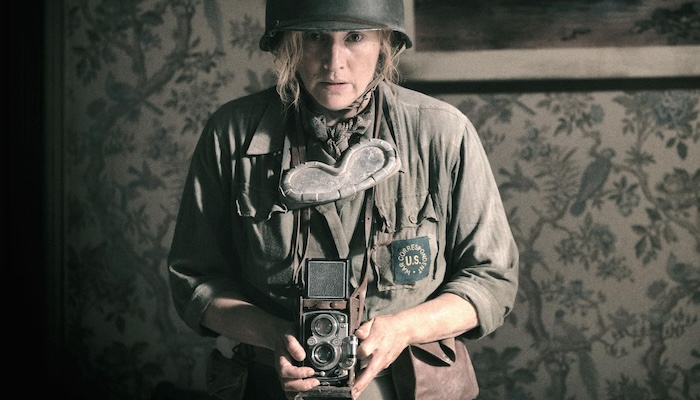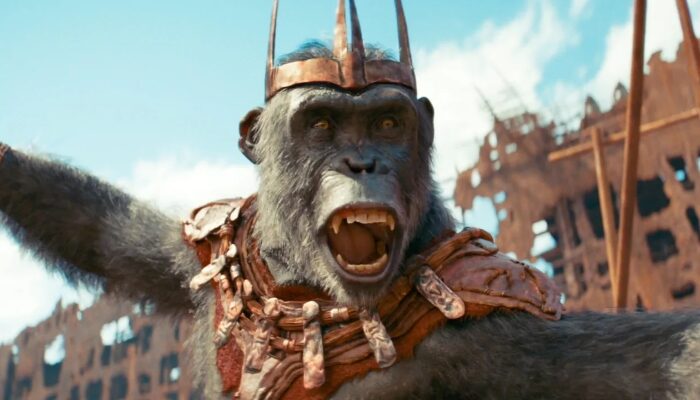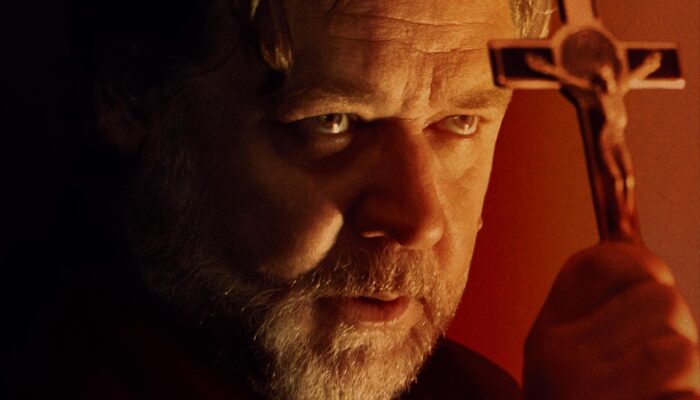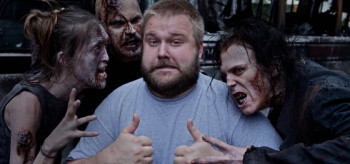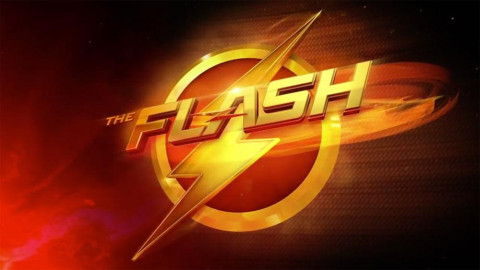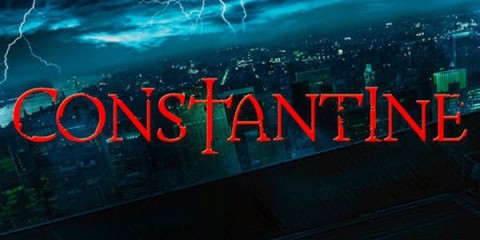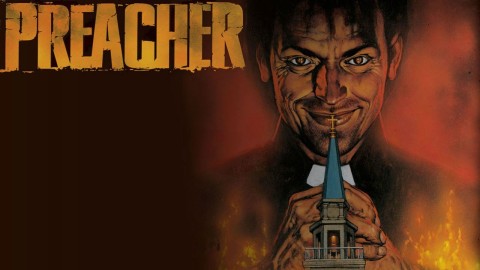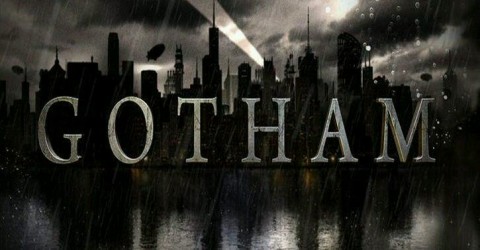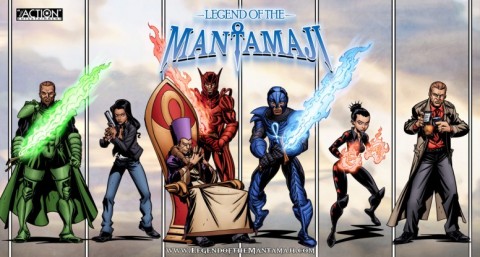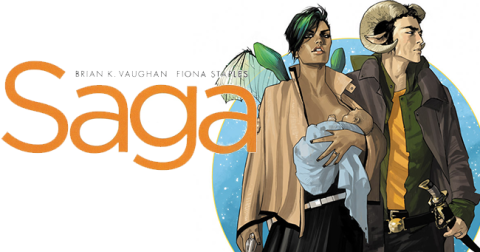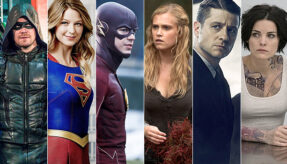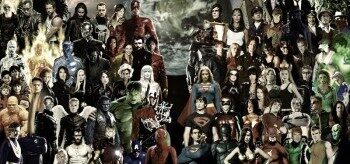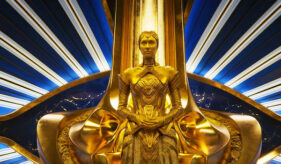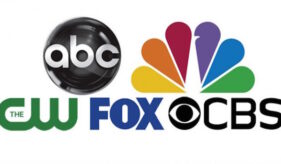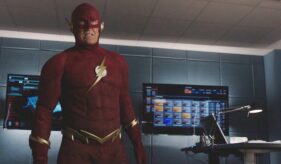WINTER BREAK 2014-2015: Zombies, DC Comics, & The Next Big Thing on TV
Mid-season report card, regarding the search for the next big hit. We are at the half-way point, of the 2014-2015 TV season, where the great question of the practice remains: which shows have earned the rest of their season, and which seem on track to earning another. A tall order; I’m long winded; I’m going for a narrower subject. As it would be hard for anyone to argue that Robert Kirkman‘s The Walking Dead was something of a dominator, this past half-season – and a phenomenon, overall – it would be no stretch of the imagination to figure every network, studio, and creative type is now out for its crown. For the sake of brevity (mercy, laziness, call it what you will), I’m going to take a swipe at comic book properties, current, up-coming, and prospective, likely vying for the title of the next Golden Goose of comic book adaptation to the small screen.
Front seat considerations will have to be made for Kirkman’s other projects in the pipeline, Outcast, and Fear the Walking Dead. Having a direct link to TWD‘s creator, and sharing its brand name brings certain expectations of success (Lorde knows the CSI brand name has had some miles put on it). A leg up is not a guarantee, however, and viewers may even begrudge these shows for their pedigree (I haven’t seen it – anyone taking NCIS: New Orleans seriously?); so I will focus on the other comic based series, riding the wave to “not just for comic fans” phenom status.
I’ll rule out ABC’s Agents of S.H.I.E.L.D., and Agent Carter, right off the bat. Agents is halfway through its second season, and may have already settled into a place on the scale, well short of TWD‘s out-of-the-gate momentum. Furthermore, Agents seems perfectly primed for an entirely different, entirely unique destiny. Originally regarded as a place holder (coasting off the popularity of films like Avengers, long enough to then glom off of the next big screen release), Agents may have pioneered an entirely new role, for a primetime TV series: Silver Screen ambassador. If season 1.2 served as connective tissue, between the series and the Marvel Cinematic Universe, then season 2.1 may have initiated a link between the MCU, and any number of Marvel properties (not hoarded by Sony, or Fox), the MCU has no immediate plans for.
Agent Carter may very well serve the same purpose, but retroactively. It will likely build connective tissue to the MCU’s collective backstory; covering Agents‘ back, as that series continues building an MCU ground game, going forward. As such, in the event Agent Carter takes on a life of its own, it will still be a part of an Agents block, more concerned with serving Marvel’s greater agenda, than acquiring Walking Dead‘s TV phenom status. In the event things go according to plan, as I’ve seen it, I’d say both shows would become phenomenons in their own right; but likely not bringing in TWD figures.
Outside of the Agents block, comic book TV adaptation has been an almost entirely DC comics affair. While Agents of S.H.I.E.L.D. marked Marvel’s return to a primetime, live-action television series (since the Hulk), there have been intermittent DC offerings, going back to the end of the 80s, that have included Swamp Thing, a Superman treatment, and two treatments for Superboy, Flash, and even The Human Target, respectively. On paper, I’d say the odds of finding a rainmaker are in DC’s favor. I’ve ruled out the CW’s Arrow, as another show that may have settled into a multi-season comfort zone, taking it out of contention; but Arrow‘s steady build, in buzz & viewership, did lay some groundwork for a much anticipated spin-off.
A lot of people were looking forward to the Flash series; so it came as no surprise that its debut was a major windfall for The CW network. What remains to be seen, however, is just how much of the show’s initial success came from source fans, Arrow hold-overs, or the casual curious. The best case scenario would be all-of-the-above. Source fans always want to see their heroes done justice in live-action; migrating Arrow fans would mean great viewer retention for the network; and casual viewers tuning in, just to see what comes of it, suggests a broader interest in DC’s overall adaptation works-in-progress. Of course, none of that matters if the show’s no good.
The Flash is about as decent an effort as could have been expected, depending on what you were expecting. If you were expecting an extension of certain Arrow themes, like the evolution of Stan Lee styled flawed hero, the Whedon-esque Scooby Gang, and season long teasers, as to who the ‘Big Bad’ will turn out to be – but with the lighter, more sensational touch, that should be associated with the Flash – then you’re barking up the right tree. If not, then The Flash may be barking up the wrong tree.
Personally, I’ve been left on the fence. On one hand, the series is more of an escalation to Arrow, than an extension. The SFX are top notch (more importantly: they’re appropriately realized & applied), Grant Gustin has yet to cross the line, between affable & annoying, and the show being free of Arrow‘s sensationalism ceiling makes for exponential potential, in terms of plotting & source material.
On the other hand, the Scooby Gang may wear thin before its components get a chance to earn their place, the familial/ romantic elements are, at times, too heavy handed, and the creative team’s efforts, to reconcile powers, characters, and ‘good TV,’ often force these elements to conform to the plot, rather than the other way around. There have been too many easy outs, just to make sure a full hour gets wrung out of the villain-of-the-week. Some formulas wear on the nerves more than others.
I guess the real measure of the show’s prospects will lie with how many non-Arrow fans remain interested in it, and if casual viewer interest, in the upcoming slate of DC adaptations, will ever embrace The Flash as anything other than the other CW comic book series.
Despite borrowing heavily from the Dark Knight trilogy, and improving its ratings, with each season, Arrow has been effectively left to its own devices, by Warner Bros. & DC comics. They can afford to, so long as their big screen joint universe project doesn’t go bust. The problem is that the same fate may await The Flash, with its direction having no bearing on anything else DC does with its numerous properties. Even after a lot of talk, about a joint DCU on the small screen, consider the subtle cross-over that never was. At the end of the day, The Flash may have done more to boost The CW’s brand name, than DC Comics’.
Beyond a relatively small, yet very passionate, fan following, for its source material, I’d say more public awareness of this property came by way of the Keanu Reeves film. That would make for a case of same name, different game; allowing for likely viewers picking their own poison, regarding which was the more enjoyable experience. Besides leaving the series open to the somewhat scary possibility, of casual viewers actually siding with the film, that relatively low brand recognition did grant the Constantine series with built in breathing room.
Constantine benefits from higher production values, fitting into an established viewing block (courtesy of Grimm), and NBC’s higher marketing profile (all opposed to, say, The CW). Between its built in audience, and relatively edgy content, however, Constantine should have performed better than it has.
While considerably more faithful than the film, the Constantine series still didn’t pack the punch of the source material. It would be easy to fault the powers-that-be, for watering down both the character & the content – placing more emphasis on making John Constantine a more lovable rogue; but that had been the case with the source character, for some time. Once the original British Invasion (Moore, Gaiman, Morrison, etc) began to recede, the legacy, that was Vertigo, slowly began to be incorporated into the mainstream DCU. With the New 52, John Constantine was officially mainstreamed, as a member of Justice League Dark. The TV version of John Constantine likely borrows more from the current anti-hero, of the League, than the outright bastard of Hellblazer; softening the impact the show might have otherwise had. On the other hand, I’m not entirely sure that original recipe John Constantine would be welcomed on broadcast television.
The real handicap, to Constantine, has been its venue. Network television is no place for a Vertigo heavy hitter, and Constantine‘s source material is no more at home on NBC, as the Punisher would be on ABC. One reason for The Walking Dead‘s success, has been AMC’s ability to retain enough of the source material’s edge, while leaving the show available to a wider basic cable audience, to please casual & source fans, alike. A fact that bodes well for the next big Vertigo TV project.
I’ll admit, Preacher came after my time, and I am unfamiliar with the material. I am familiar enough with its pedigree (it was where Hellblazer’s crew went off to, when Constantine no longer satisfied, creatively) to know that it definitely does not belong on network television. Much like The Walking Dead, Preacher stands to benefit from its relatively low profile, combined with an eager fanbase. It is an older fanbase, and heavier material, leaving it with bigger shoes to fill; but the sheer novelty & edginess of that material, unleashed upon a mostly unfamiliar audience – already primed for just such a thing, by TWD – may present Preacher as a welcomed surprise. Other comic based properties, however, had little/ no novelty to work with, from the beginning.
Gotham, without a doubt, had generated more buzz, and raised higher expectations, than any other new series on broadcast television. Undoubtedly, most of that came from the Batman brand name, upon which it marketed itself on, wholesale. Even the project’s detractors were voicing curiosity, over how “a Batman series without Batman” would work, giving the series some opportunity to win them over. That did happen, to some degree, as the show did reasonably well. So how, then, did the glossiest comic based series, with the highest profile since Agents of S.H.I.E.L.D., manage to disappoint so many critics & fans? Never mind the usual culprits, like acting, plot, etc, I think more inherent issues, within both the show, and its franchise, has worked against it.
For starters, familiarity breeds contempt. Batman has garnered the lion’s share of comic & comic based titles, projects, and merchandising, since the character’s mid 80s renaissance (culminating in the Tim Burton film). Between Bob Kane, Frank Miller, Sam Raimi, Bruce Timm/Paul Dini, Jim Lee, and Christopher Nolan, his origin/ introduction has been redone so many times, that fans not only get to pick & choose which they subscribe to, but have been left in a position to take further origin stories with a grain of salt. Gotham, from inception, faced the uphill prospect of being just another attempt at cashing in on another rehash (minus any payoff, in the foreseeable future).
That placed the series burden squarely on the ability of its re-envisioned rogues & supporting characters to capture & hold audience attention, long enough for the show to achieve some kind of payoff. Towards that end, Gotham may have set itself at cross purposes. It seeks to capitalize on Batman lore, but has abandoned much of it, in order to create something new, and easier to manage (because, honestly, remaining true to canon would have left us with nothing but recognizable characters as kids & teenagers). It promoted itself as the series that would make sense of Batman’s extended cast of characters, bringing a fuller context to it all; but the last DC project to promise that much turned out to be Smallville. Such a comparison may be too easy a charge to throw around; so maybe a bit of context is needed, before the series can be called out, as short change.
James Gordon (Ben McKenzie) has been mis-characterized. One reason that Frank Miller’s Batman: Year One has been widely accepted as the definitive Batman origin tale, was his characterization of Jim Gordon. That Gordon came to Gotham with a dark past, a cynical eye, and a family that needed protecting – from as much his job, as the city. That set Gordon as the man apart from the system, making him the one man, within the system, that the Batman could trust. He was a peer. Gotham‘s Gordon has been re-envisioned as a boyscout. All of the edge, to his character, has been transferred to fiance, Barbara, and he wears his distaste, for the way things run in Gotham, firmly on his sleeve. His re-imagining, from peer to father figure – while an attempt to build on one key moment, from the recent film trilogy – threatens to fundamentally change the Batman/ Commissioner relationship. Worse, the most important relationship, regarding the source character’s crusader motivates, has already been relegated to a buddy cop dynamic.
Harvey Bullock (Donal Logue) is no substitute for Det. Flass. Maybe DC’s New 52 has reinvented Harvey Bullock (I honestly don’t know), but the Bullock I remember was something not all that dissimilar to Batman, himself (never mind the obvious differences). Bullock was always on the Internal Affairs watch list for his crime fighting methods, not for being a crook. That essentially left him as an anti-hero with a badge. The only thing that separated Bullock & young Gordon, was that Bullock wouldn’t recognize the anti-hero without a badge. Operating too far from the book, for IAD, but sticking too close to it, for the Batman, left Bullock in a very unique grey area, in the Gotham landscape. For the Gotham series, however, Gordon needed the kind of harsh initiation that he received in Year One. Gordon needed Flass.
Flass was the character that proved to Gordon that the system could be much more corrupt than he had previously believed. That’s neither what the source character of Bullock was about, nor is that what the Gotham character was meant to be. Gotham‘s Bullock is more of a bad cop guide for Gordon – actually exhibiting some genuine concern for his good cop partner – than negative reinforcement. Gotham, however, still seems intent on making Bullock the face of the system’s corruption. When it’s all said & done, the Gotham blending of characters will ultimately mean either a formal condemnation of the Bullock character, or a redemption for the Flass character he is meant to represent.
I should probably say something about what they did with Det. Montoya; but as a lesser known character, I suppose she gets some wiggle room – even if Gotham has made her a party to Barbara’s custodianship of Jim Gordon’s balls.
Anyone else found Alfred Pennyworth (Sean Pertwee) a little rough around the edges? Call me old fashioned, but when I think of Alfred, I think subtlety. The fact that the character would be revealed as having a special forces/ secret service background, only served to underscore this gentlemanly demeanor. Gotham‘s version, as a father figure, should be less stoic than the source character, and may have been conceived as a younger version of Michael Caine‘s interpretation – I can appreciate that. The ‘stiff upper lip’ calm demeanor, however, in the face of perpetual Bruce Wayne peril, and the ability to contribute to cases, without breaking aloof stride, was what made Alfred more than just the butler.
The age gap & bend it ’till it breaks revisionism. In the rush to present the familiar, Gotham has gone so far as to introduce Venom (source Bane’s “I will break you” juice) well out of any source timeline; but the show has taken greater liberties than that. First & foremost among them: making the bulk of the Batman rogues gallery contemporaries of Gordon, rather than Bruce. Between Batman ’66, and Batman Returns, some allowance can be made for Penguin being that much older than Batman. Putting Riddler & Two-Face a generation ahead, however, takes away considerably from the future dynamic – particularly where Harvey Dent is concerned. That rush, to bring in familiar elements, has not only brought us a pre-ordained Batman-Catwoman romance, but has made Selina Kyle Bruce’s first mentor. That scenario speaks for itself. Gotham didn’t stop there, however, as every iconic character constantly hammers home who they’re meant to be. Selina’s the Catwoman – we get it; quit making Camren Bicondova act like a cat every other moment (and maybe get her out of costume, once in a while). If the point of the series is to lay the foundations for Batman’s Gotham, then they should at least try to produce pieces that fit the finished picture. If they lack enough faith – in a Gotham without Batman – to just make stuff up, then don’t promise us the property we know. Smallville may have absolutely wrecked the Superman timeline, but at least it made Clarke Kent interesting (for a little while). Will Gotham do anything for Bruce Wayne?
Bruce Wayne (David Mazouz) has been left uncomfortable, in his own skin. If I had to summarize Bruce Wayne, as a character, I’d say he is a man who had sacrificed what little innocence survived his parents’ murder, in order to protect other innocents. Gotham is trying too hard to prove that he has innocence left to lose, and it doesn’t seem to match his determination to be an avenger. Gotham supposedly serves to showcase the stumbling blocks, on his way to starting the journey, itself; but it’s as hard to take his innocence seriously, when he starts acting tough, as it is to be impressed by his resolve, when he keeps breaking down. It’s almost like he’s playing to whom ever’s around, based on the circumstances. That could pass for deviousness; but since it’s our future hero, we’re taking about, it could just be bad acting/ direction.
On a side note: is it just me, or is Wayne Manor completely devoid of smart technology? I can’t recall ever seeing Bruce at a computer, laptop, or smartphone – all of his research has been done via newspaper, and other print media. Kind of young to be a hipster media snob. More likely, this would be an example of Gotham attempting to orient the show’s modern setting, with the property’s permanent Bob Kane era stylings.
Gotham has already put too much into setting up its mythology to correct course, starting with season 1.2 – perhaps even season 2. There remains plenty of room for the series to earn a seat at the table, by way of better story telling & characterization; but Gotham has set itself up to be more Smallville, than Year Zero – a self-contained revision, more concerned with self-preservation, than retroactively expanding the brand name.
So, with no real break-outs, coming from the current field of new comic book properties, where should we look, for the next TWD sized phenomenon?
Apart from Preacher, on AMC, the obvious contender will be Marvel’s Defenders project, for Netflix. I’m putting my money on the Daredevil component – only because I still regard some of its material as Frank Miller’s greatest work – but such a broadly ambitious undertaking leaves plenty of room for shared success.
There’s iZombie, another DC/CW collaboration, that may go right for TWD‘s zombie fan base; but even if there is a ready audience for a lighter take on the genre (a la, Warm Bodies), iZombie may find itself as just another CW make-over, to a more adult themed fan favorite (Vampire Diaries to True Blood, Reign to Game of Thrones, the list goes on).
There are other, lesser known projects, like DMZ, that may follow TWD‘s success by way of sleeper appeal; but if I were in a position to make recommendations, I would nominate two currently untapped properties for adaptation.
There has never been a headlining, live-action, comic book hero of color, on the small screen, and there hasn’t been an original super hero of color since Fox’s short-lived Mantis series. The market is wide open. Luke Cage stands to fit the bill; but only by this upcoming series outpacing the rest of its Netflix stablemates, can any credit be given to it being a diversity draw. It will more likely sink or swim on its merits as a Marvel adaptation.
Eric Dean Seaton would like to take a swipe at changing the TV landscape, somewhat; but not necessarily in the way that first comes to mind. Legend of the Mantamaji isn’t so much about a black superhero, as an expansive tale, populated by diverse characters. If anything, it strikes me as more categorically neutral, than specific; as diverse in gender, age, and class, as it is in ethnic make up. Like TWD, Seaton regards his work as an emphasis on old fashioned character building, and suspenseful storytelling, rather than a hook premise. Of course there’s a hook premise (if cornered, I’d describe one of its aspects as a more grounded Green Lantern Corps.). With Seaton calling on the likes of John Byrne & Jim Starling, as influences, however, the devil may be in the details; allowing Mantamaji to be something more than another comic based TV show – much like TWD has always been more than just another zombie apocalypse story.
Seaton aspires to bring his creation to life, on the small screen, as a veteran writer/ director of network television; but even with his network connections, he has yet to generate sufficient interest. There is also a matter of casting. Seaton has a somewhat specific idea of who could pull off his key characters; but there are only so many casting choices that he can name, off hand. “A young Denzel Washington,” as the ideal choice to play central character, Elijah Alexander, for instance, sets a pretty distinct bar to clear.
The odds may not be completely stacked against him, on this. Shonda Rhimes, with hits like Scandal, has proven that shows with universal themes, and a diverse cast, can thrive, if properly handled. Mantamaji, however, would be a considerably more ambitious project; and while Seanton would rather have a major network’s audience, than a basic/ premium channel’s indulgences, he has some reservations about primetime being ready for something of Mantamaji’s scale. If he had to, he would compare his project to Avatar: The Last Airbender (his story unfolds in a three book graphic novel format), in terms of the kind of comprehensive World building he has in mind; but cited Nickelodeon’s handling of The Legend of Korra as discouraging.
Still, when a TV insider creates a comic, ready made for television, geared to a more diverse demographic, and inherently more ambitious than his inside connections are willing to bet on, I’d say there was a hit in the making. Seaton taking the independent publisher route should also make negotiating a live-action adaptation that much easier; but mostly from the network’s angle (no leverage from parent companies, like Warner & Disney). The Legend of the Mantamaji may be the right project, waiting for the right time, to get the green light. Unfortunately, with big network flops, like The Cape, and under performers, like Constantine & Human Target, the networks may need another TWD sized hit to spur them into action.
My other recommendation has generated considerable buzz, and wide acclaim, but has yet to to be tapped. With its roots in Star Wars, a catchy appeal that has it being quoted & referenced by other works, and the deftness with which it blends uniquely epic arcs, with something as universal as parenthood (for being monumental & mundane, at the same time), Saga may be just the kind of print phenomenon that could wind up taking the air waves by storm.
The fact that creator, Brian K. Vaughan, is also a TV veteran (he helped resuscitate Lost), shouldn’t hurt. Of course, the right venue counts considerably. In order to maintain the source material mojo, it must be kept away from network television. Completely. Despite some recent efforts, SyFy has lost too much of its credibility to be entrusted with such a project, leaving basic cable go-to guys, like AMC, or TNT, as good choices. Of course, the best choice would be a premium channel. Showtime was the original home of SG-1, and the success of Game of Thrones has proven that quality brings viewership – pay channel, or not. Throw in the eagerness of upstarts, like Starz, or Encore – no doubt wanting their own GoT sized water cooler hit – and there may be no expense spared, to realize a work like Saga as faithfully as possible.
Of course, who’s to say that the next great TV adaptation will be based on an American comic? Manga has had a long, happy marriage to Anime; but in recent years, live-action treatments (like Blood+, and the upcoming Attack on Titan) have opened up new avenues, for Manga creators. These have been confined to Asian markets, thus far; but classics Akira & Robotech have been in the pipeline, for the Hollywood treatment, for some time. There have also been rumblings over the more recent series, Bleach. Not only have Mangaka taken their craft more seriously than some U.S. live-action dramas, they have also produced a body of works that would require no cultural translation. A Euro-centric story, like Full Metal Alchemist, could appeal to GoT fans; while a neutral setting work, like Black Lagoon, would fit with Cinemax series Strike Back, and Banshee.
Personally, I’d like to see a live-action Neon Genesis Evangelion put imitator, Pacific Rim, to rest; but that’s just my own personal grind, and ‘Rimmers’ are likely going to call NGE the imitator, anyway (considering that Alien Versus Predator was initially accused of ripping off Freddy vs Jason – believe it, or not).
2014 may not have brought us the next Walking Dead phenomenon-in-the-making, but I do appreciate the fact that TWD gave everyone a reason to start looking for one. If the success of Marvel’s joint cinematic universe project has ushered in a new golden age – by way of an arms race, between studios – then the success of TWD is more than likely be an open season call, for every small operator with big ideas. Insert Prometheus David quote here.
Yes, there will be the usual rip-off by-product (no one has pointed a big enough weapon, at a vital enough body part, to get me watching Z Nation, so far); but there is a world of material out there, and a new level of interest in making bank off of it.
If you’ve read this far, you’ve earned yourself a drink. Maybe a tab. Here’s to happy hunting, some quality trophies, and a 2015 that keeps the geek manna flowing. Happy New Year.
Leave your thoughts below in the comments section. For more editorials, visit our Editorials Page, subscribe to us by Email, “follow” us on Twitter, Tumblr, Google+ or “like” us on Facebook.
Related Articles
FilmBook's Newsletter
Subscribe to FilmBook’s Daily Newsletter for the latest news!

